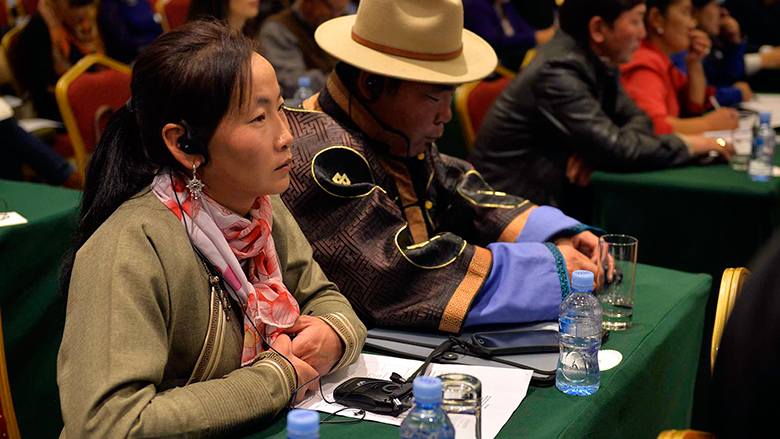These are key themes a workshop being organized today by the Herders Association, Food Producers’ Association and Meat Association of Mongolia in collaboration with the World Bank Group. Titled “Productive alliances in meat sector for increased exports”, participants will discuss meat sector obstacles and challenges to becoming more commercial and competitive to grow exports.
The workshop seeks to strengthen mutual understanding and trust among different stakeholders, and discuss the domestic value chain constraints in the meat industry in Mongolia. Currently meat exports cannot reach their potential due to animal diseases outbreaks and to marketing challenges.
“The World Bank has supported the livestock and agriculture sectors and the rural population over the years, focusing mostly on vulnerability. The next challenge is to shift support to underpin a more competitive and commercial agriculture and livestock sector. To do so requires full engagement with the private sector, sustainable development of value-chains, and better knowledge of potential markets,” said James Anderson, World Bank Resident Representative in Mongolia.
“During the command economy, Mongolia used to export about 40 thousand tons of meat and 3 million live animals per year and the herd population size was 25 million. Today we have less than one thousand tons of exports, and more than 50 million animals. We have to work collectively to compete internationally and the starting point is improving understanding and trust amongst all stakeholders” said Kh. Giimaa, Executive Director of Food Producers Association.
“We are pleased to see that this workshop has been very successful in bringing together herders’ representative, agri-business firms, development partners and government representatives to share their experiences and identify bottlenecks. We hope that the two ongoing studies by the World Bank Group – analysis of the Chinese and establishment of Productive partnerships – will also contribute to the future implementation of the new Government Action Plan” said the Stephane Forman, Senior Livestock Specialist of the World Bank.

